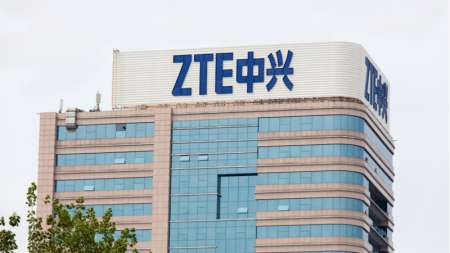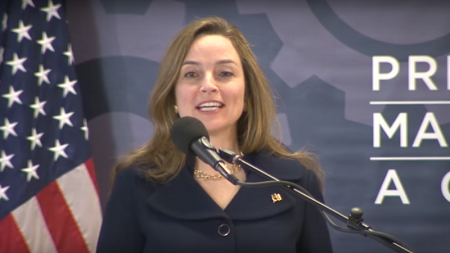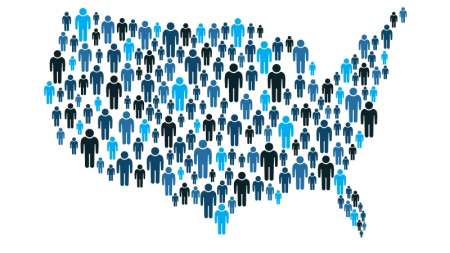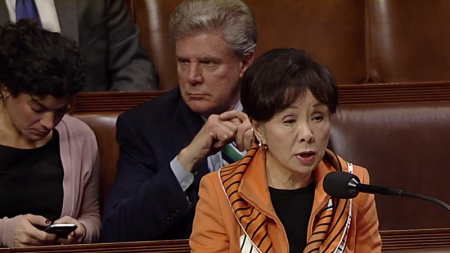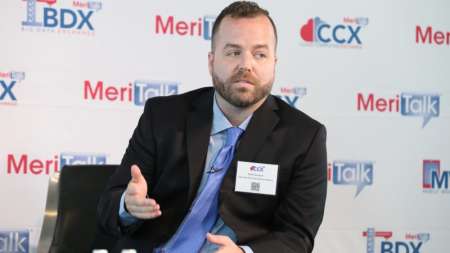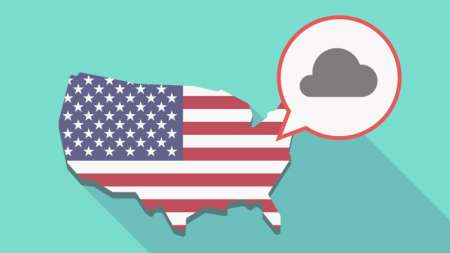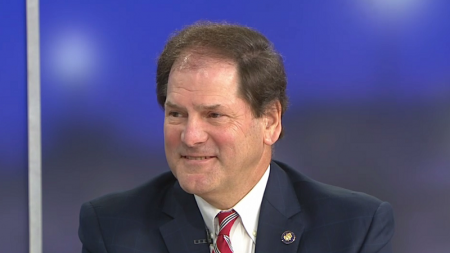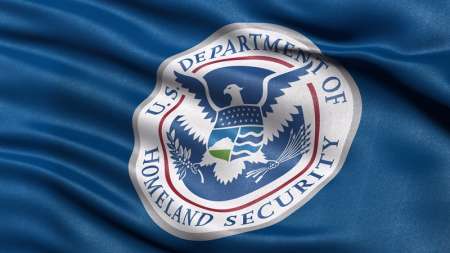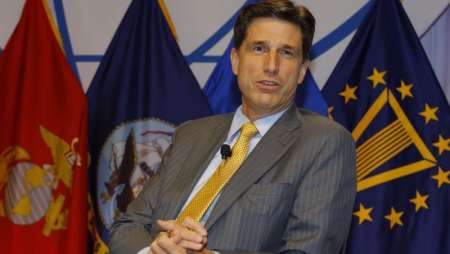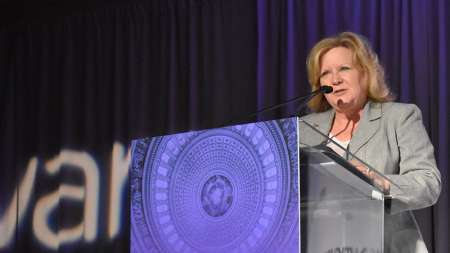The Department of Justice (DoJ) said Thursday it was putting in place a new policy governing disclosure by DoJ and other Federal agencies of “foreign influence operations” being conducted in the United States. The agency said the new policy “provides guideposts for Department action to expose and thereby counter foreign influence threats, consistent with the fundamental principle that the Department always must seek to act in ways that are politically neutral, compliant with the First Amendment and designed to maintain the public trust.” […]
As the National Defense Authorization Act (NDAA) for FY2019 makes its way through the House-Senate conference process, Senate Republicans today agreed to drop their ban on China-based communications equipment maker ZTE in favor of the House’s more lenient version of that measure. […]
Grant Schneider, currently the acting Federal chief information security officer, has been named Federal CISO on a permanent basis, the Office of Management and Budget (OMB) announced on Thursday. As CISO, Schneider is tasked with implementing cybersecurity practices across the executive branch, as well as serving as a policy advisor for the Trump administration. […]
Welcome to MeriTalk News Briefs, where we bring you all the day’s action that didn’t quite make the headlines. No need to shout about ‘em, but we do feel that they merit talk. […]
The House Intelligence Committee today heard testimony from several witnesses who warned that China is actively working to infringe upon the intellectual property rights of U.S. entities, engages in cyberespionage against the United States, and poses a growing cyberthreat to the country. […]
Margaret Weichert, deputy director for management at the Office of Management and Budget (OMB) and one of the Trump administration’s most visible point persons promoting its plan to reorganize numerous aspects of Federal civilian agencies, said on Wednesday that the first fruits of that plan may be efforts to standardize aspects of the Federal cybersecurity workforce, ease the backlog of Federal background checks, and make improvements in the provision of government digital services generally. […]
Welcome to MeriTalk News Briefs, where we bring you all the day’s action that didn’t quite make the headlines. No need to shout about ‘em, but we do feel that they merit talk. […]
Following a July 16 letter by former government officials requesting disclosure of 2020 Census cybersecurity policies, the U.S. Census Bureau issued a statement today affirming its “robust cybersecurity program” and ensuring interested parties that cybersecurity remains paramount at the bureau. However, it said it was declining to reveal all of its encryption policies “as a matter of data security.” […]
The Office of the Inspector General (OIG) found that the General Accountability Office (GAO) isn’t fully compliant with the Federal Information Security Modernization Act of 2014 (FISMA), according to a report released yesterday. […]
During today’s House Energy and Commerce Committee Subcommittee on Digital Commerce and Consumer Protection hearing to discuss oversight of the Federal Trade Commission, Rep. Doris Matsui, D-Calif., said she was introducing legislation calling for a common definition of blockchain. […]
The General Services Administration (GSA) announced Tuesday that it struck a deal with Veritas to provide Federal agencies with software for data governance and cloud management. […]
Matt Goodrich, FedRAMP director, and Ashley Mahan, FedRAMP evangelist, addressed industry feedback to FedRAMP’s recently released authorization boundary guidance during a webinar today. […]
A large group of former Federal government officials–including national security and other experts from the Departments of State, Homeland Security, and Justice–urged Secretary of Commerce Wilbur Ross in a letter released yesterday to disclose the 2020 Census’ data protection and cybersecurity policies. […]
The Hide ‘N Seek (HNS) Internet of Things (IoT) botnet, which initially targeted home routers, IP cameras, and video recorders, has been expanded by cybercriminals to target two NoSQL database servers, making it a cross-platform botnet. […]
Federal IT pros clearly have their heads in the clouds–as government efforts increasingly focus on leveraging cloud computing to help support mission-critical workloads, securely and cost-effectively. […]
Microsoft President Brad Smith said in a July 13 blog post that the Federal government, along with lawmakers in governments worldwide, must develop appropriate regulations for the use of facial recognition technology by individuals, organizations, and government entities. […]
Welcome to MeriTalk News Briefs, where we bring you all the day’s action that didn’t quite make the headlines. No need to shout about ‘em, but we do feel that they merit talk. […]
It’s the Monday after a 6-goal barnburner in the World Cup final, a torrential downpour trophy ceremony, and we’ve now entered the era of existential dread for the world’s soccer fans. Reality sets in. It’s four years until the world’s biggest sporting event comes back around. […]
As far as the Department of Defense is concerned, artificial intelligence is a team game, particularly where robots are concerned. […]
Lawmakers last Wednesday decried a surreptitious industry effort to correct longstanding hardware vulnerabilities affecting nearly all modern computer processors. The reason? The Federal government didn’t get the memo. […]
Welcome to MeriTalk News Briefs, where we bring you all the day’s action that didn’t quite make the headlines. No need to shout about ‘em, but we do feel that they merit talk. […]
Irv Dennis, chief financial officer at the Department of Housing and Urban Development (HUD), on Thursday described HUD’s plan to use the largest-awarded sum from the Technology Modernization Fund (TMF)–including timelines for rollout and repayment–in an appearance on Government Matters. […]
Adopting cloud isn’t a one-size-fits-all proposition for Federal agencies. Instead, agencies looking to modernize their enterprise IT are customizing their adoption approach to fit their agencies’ structure, according to government and industry executives leading a Capital Exchange webinar on July 12. […]
Using digital records instead of paper-based ones can save government agencies money and help them provide better service to their constituencies, said speakers during Government Technology’s “Going Paperless: How to Do It and What You Will Gain” webinar on July 11. […]
Welcome to MeriTalk News Briefs, where we bring you all the day’s action that didn’t quite make the headlines. No need to shout about ‘em, but we do feel that they merit talk. […]
Amid mounting concern about attacks by foreign adversaries on the Department of Homeland Security’s supply chain, two House subcommittees met today to discuss that threat and legislation proposed by the White House–the Federal Information Technology Supply Chain Risk Management Improvement Act–that would respond to the problem. […]
Alexander Kott, chief scientist at the U.S. Army Research Laboratory, said Wednesday at the Defense Systems Summit that creating artificial intelligence (AI) and machine learning (ML) solutions for complex battlefield environments requires different prioritization than commercial solutions, and offered four tips for defense organizations looking to implement. […]
Department of Defense (DoD) Chief Information Officer Dana Deasy said today at the Defense Systems Summit that he has identified four “key strategic areas” that will work to support the National Defense Strategy (NDS). Those four areas – cloud, artificial intelligence, C3 (command, control, and communications), and cybersecurity – are organized not in order of importance, but rather “order of integration,” Deasy said, with each of the priorities flowing from the prior one. […]
Welcome to MeriTalk News Briefs, where we bring you all the day’s action that didn’t quite make the headlines. No need to shout about ‘em, but we do feel that they merit talk. […]
At today’s TBM Council Public Sector Summit, three government leaders stressed the importance of evolving the Federal government’s Capital Planning and Investment Control (CPIC) process and the role Technology Business Management (TBM) can play in that evolution. […]


